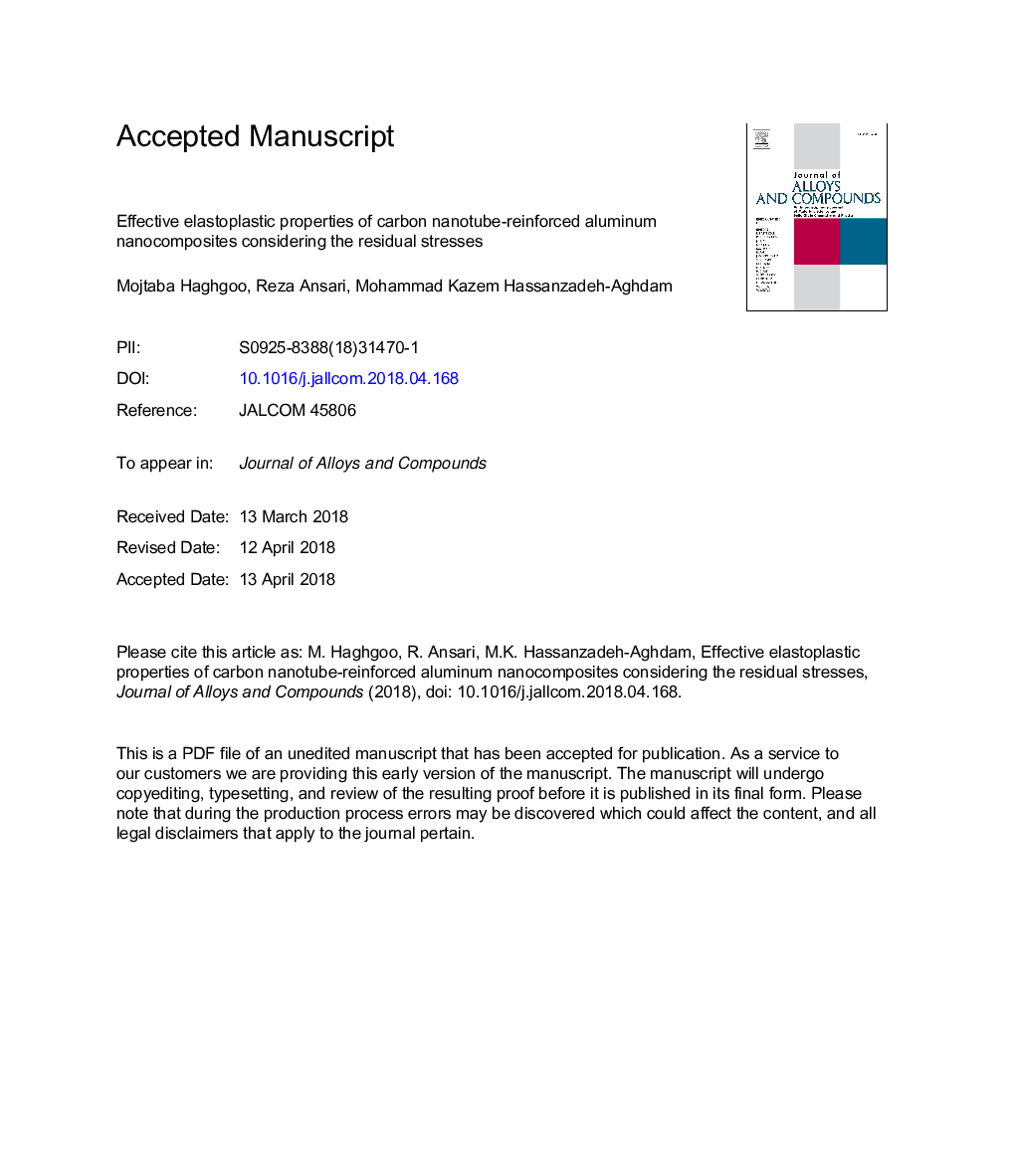| Article ID | Journal | Published Year | Pages | File Type |
|---|---|---|---|---|
| 7991610 | Journal of Alloys and Compounds | 2018 | 37 Pages |
Abstract
The residual stresses (RSs) can be generated by the thermal mismatch between the carbon nanotubes (CNTs) and aluminum (Al) matrix during the manufacturing process of this type of nanocomposite materials. It may play a significant role in the strengthening capability of the CNT/Al nanocomposites. In this work, a micromechanics-based method is developed to a comprehensive analyze the effect of thermal RSs on the overall elastoplastic behavior of the CNT/Al nanocomposites. Also, the micromechanical model includes an agglomerated state for the CNTs within the Al nanocomposites. Generally, a good agreement is observed between the results of the present model and available experiment. The results clearly emphasize that for a more realistic prediction in the case of the overall elastoplastic behavior of CNT/Al nanocomposites, the consideration of thermal RSs in the micromechanical analysis is essential. It is found that the thermal RSs can seriously reduce both the yield strength and ultimate tensile strength of the nanocomposites. Moreover, the proposed model is employed to investigate the influences of several important parameters such as volume fraction, aspect ratio and directional behavior of CNTs, degree of CNT agglomeration within the matrix on the elastic modulus, thermal expansion behavior and overall elastoplastic response of CNT-reinforced Al nanocomposites. The herein reported results could be actually useful to guide an accurate modeling and the design of a wide range of metal matrix nanocomposites reinforced by CNTs.
Keywords
Related Topics
Physical Sciences and Engineering
Materials Science
Metals and Alloys
Authors
Mojtaba Haghgoo, Reza Ansari, Mohammad Kazem Hassanzadeh-Aghdam,
